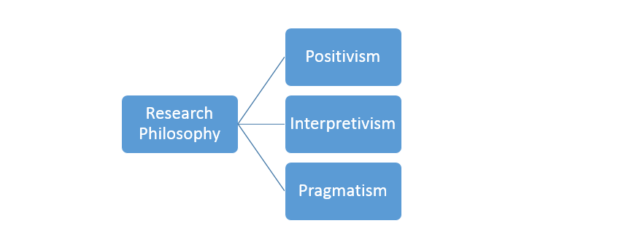What is Research Paradigm
A research paradigm is a methodology or a model, or an example to direct research. It is a system of considerations, convictions, or understandings inside which speculations and practices work. It is a component of a researcher’s opinion on improving information. In short, a research paradigm is a course outlining the research.

A research paradigm is of three kinds
- Ontology is a conviction about the real world. Ontology accepts that either a solitary reality exists or it doesn’t exist. More specifically, ontology responds to one inquiry “What is a reality”. For instance, think about the inquiry “Does God exist”. There can be two real factors (or ontologies) to this inquiry. First is “Indeed, God exists”, and second is “No, God doesn’t exist”
- Epistemology is the investigation of information. Epistemology worries about all parts of the legitimacy, extension and strategies for securing information, for example:
- What is an information guarantee.
- How might information be gained or delivered.
- How the degree of its adaptability can be evaluated.
Epistemology responds to one inquiry – “How might we know reality”. For instance, think about the inquiry, “How do you have any idea regardless of whether God exists”.
- Research Methodology-It alludes to general rules that underline how one examines the social world and how one exhibits that the information produced is substantial. The inquiry tended to in methodology is “The way to go about tracking down the truth/reply”. As a rule, research methodology is utilized to make a course on gathering and investigating the data for research.
Read Also: Why is Research Important for Students?
Research Philosophy , along with research methodology, make a research paradigm

Research philosophy is characterized as advancing research presumption, insight, and nature. Research philosophy presents the idea of the research, the sort of data related to it, the comprehension of the wellsprings of the data and hypothetical ways to dissect it.
“Ontology and epistemology are two different ways of the survey a research philosophy”.
There are four significant kinds of research ways of philosophy-

- Positivism (Objectivism) – Positivists accept that there is a solitary reality which can be estimated and known. Like this, quantitative techniques are utilized to quantify this reality. Positivism in research is a way of thinking firmly connected with the possibility of truth-based examination. A research-in view of positivism reasoning follows a thorough strategy for precisely examining data sources. It accepts that, as it were, “genuine” information acquired through perception, including estimation, is dependable. In positivism, the researcher’s job is restricted to data assortment and translation. It relies upon quantifiable perceptions that lead to measurable examinations. In positivism-based research, a hypothesis is proposed, demonstrated utilizing a measurable examination of data. The data is gathered through surveys (essential examination) or existing data sources (optional investigation). Here the connection between two factors is laid out, and the justification behind the relationship or reply to “WHY” isn’t found since positivism trusts in that frame of mind of a solitary reality. For instance, Is there any huge connection between representative execution and worker pay.
- Interpretivism (Subjectivism/Constructivism) – The term interpretivism alludes to how one can acquire information on the world, which freely depends on deciphering or understanding the implications that people connect to their activities. It doesn’t trust in a solitary family member yet depends on the presence of various real factors. Along these lines, it utilizes subjective strategies to arrive at those numerous real factors. Interpretivism incorporates human interest into a review and expects that admittance to the real world (or truths) is just through friendly developments like language, cognizance, shared implications, and instruments. In this way, here data is gathered through meetings and conversing with individuals s that alternate points of view (various real factors) of individuals can be examined. Thus, as a social entertainer,, the researcher should see the value in contrasts between individuals and subsequently utilizing subjective examination. Here the accentuation is laid on tracking down a solution to “WHY”, and dissimilar to positivism, it isn’t simply centred around laying out a connection between existing factors. For instance, why are the workers in an association not ready to adjust to the new preparation framework. Further, interpretivism can be one-sided since it depends on individual accepts and encounters.
- Pragmatism– Pragmatism philosophy is reliant upon the research question. It trusts that the way of thinking utilized in research is chosen because of the research question. Pragmatics can join both positivism and interpretivism positions inside the extent of single research as per the idea of the research question. It is an issue-situated way of thinking that takes the view that the best research strategies are those that assist in most responding to the research question. This then, at that point, includes a blend of quantitative and subjective techniques used to assess various parts of a research issue.
Read Also: A Guide To Quantitative Research Methods And Types
Further, to settle on the research paradigm, research methodology is to be chosen too. The research methodology incorporates explicit systems or procedures to investigate the data gathered for the research. A research methodology incorporates
- The methodology utilized in research that is inductive, rational or abductive
- The technique utilized is quantitative subjective, or blended. It included the two data assortment technique and investigation strategy
- Legitimacy and unwavering quality of research
For any inquiries, remarks or extra data expected on the above conversation, kindly drop a mail to findout@academicassignments.com.

 Blogs
Blogs +44 207 5588165
+44 207 5588165

